Bhutan: A Jewel of the Himalayas
Introduction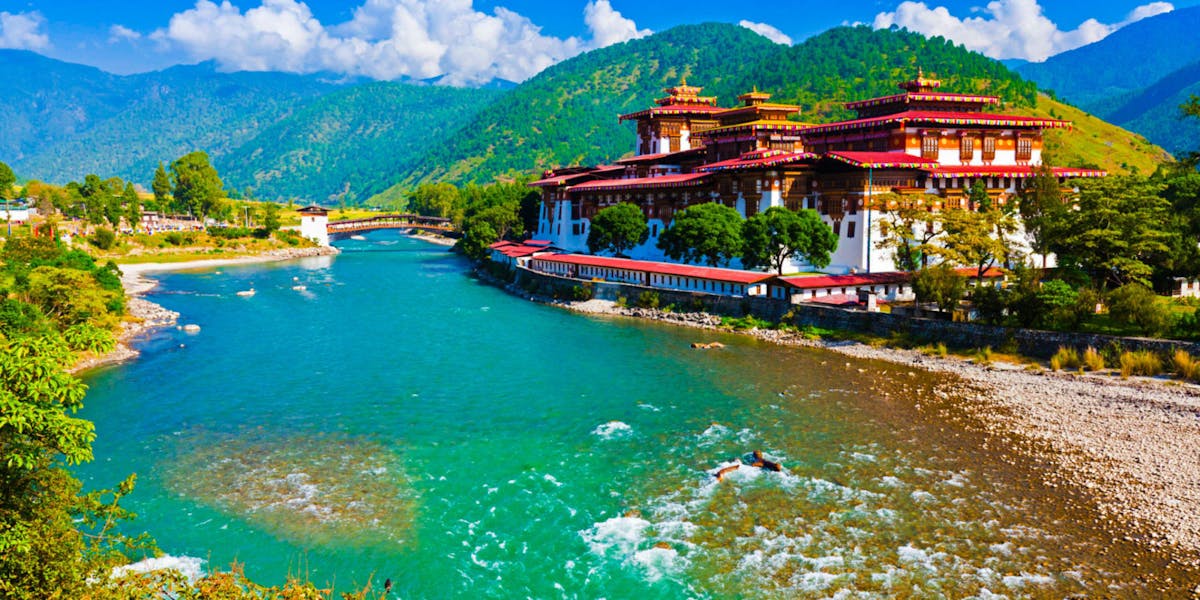 Nestled in the Eastern Himalayas, bordered by China to the north and India to the south, east, and west, lies the enchanting kingdom of Bhutan. Often referred to as the "Land of the Thunder Dragon," Bhutan is a small yet culturally rich and environmentally diverse country. With its stunning landscapes, unique culture, and commitment to Gross National Happiness (GNH), Bhutan stands out as a beacon of sustainability and harmony. This article delves into the multifaceted tapestry of Bhutan, exploring its history, culture, natural wonders, and the philosophy that guides its development.
Nestled in the Eastern Himalayas, bordered by China to the north and India to the south, east, and west, lies the enchanting kingdom of Bhutan. Often referred to as the "Land of the Thunder Dragon," Bhutan is a small yet culturally rich and environmentally diverse country. With its stunning landscapes, unique culture, and commitment to Gross National Happiness (GNH), Bhutan stands out as a beacon of sustainability and harmony. This article delves into the multifaceted tapestry of Bhutan, exploring its history, culture, natural wonders, and the philosophy that guides its development.
Historical Background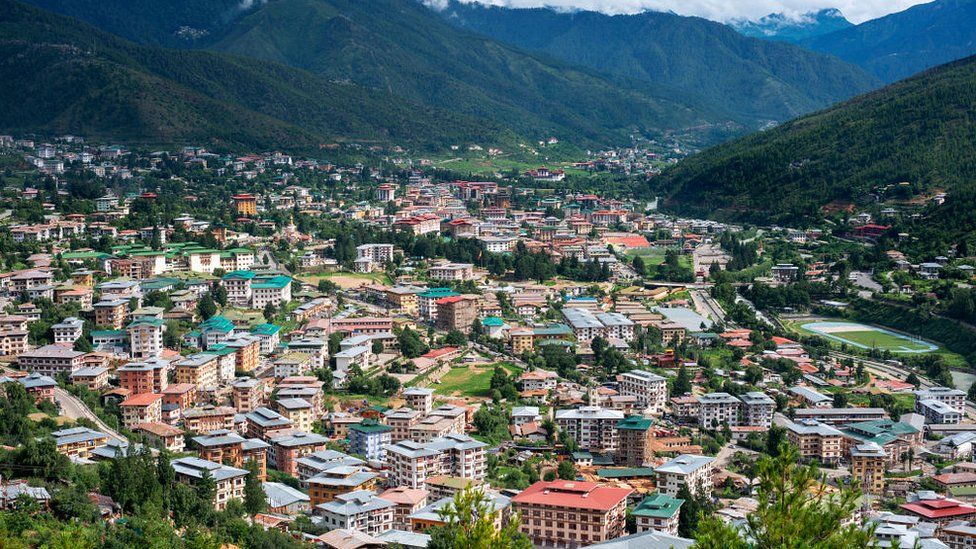 Bhutan's history is steeped in myth and legend, with its origins dating back to the early 17th century. In 1616, Zhabdrung Ngawang Namgyal unified Bhutan under a dual system of governance, establishing a unique blend of spiritual and secular authority. The Zhabdrung's legacy lives on in Bhutan's monastic tradition and administrative structure, with Buddhism serving as the cornerstone of the nation's identity.
Bhutan's history is steeped in myth and legend, with its origins dating back to the early 17th century. In 1616, Zhabdrung Ngawang Namgyal unified Bhutan under a dual system of governance, establishing a unique blend of spiritual and secular authority. The Zhabdrung's legacy lives on in Bhutan's monastic tradition and administrative structure, with Buddhism serving as the cornerstone of the nation's identity.
Throughout its history, Bhutan maintained a policy of isolation, preserving its cultural heritage and way of life from external influences. This isolation ended in the 20th century when Bhutan embarked on a path of modernization and development under the leadership of King Jigme Dorji Wangchuck. The establishment of a hereditary monarchy and the introduction of democratic reforms in recent years have further shaped Bhutan's trajectory, blending tradition with progress.
Cultural Heritage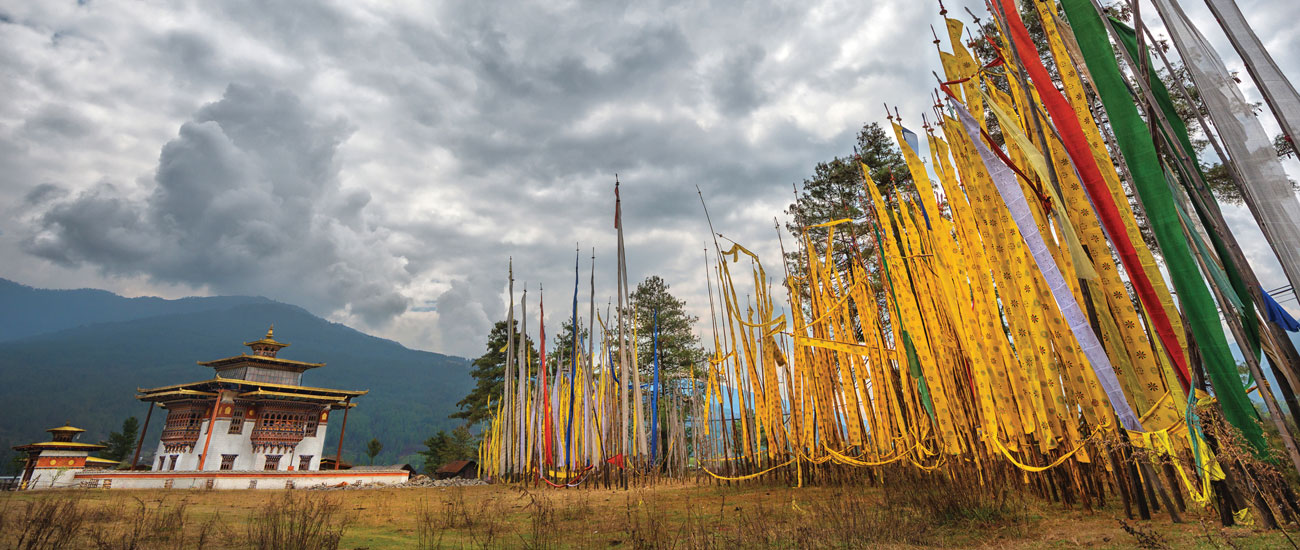 Bhutan's cultural landscape is rich and diverse, reflecting the country's Buddhist heritage and ethnic diversity. Buddhism permeates every aspect of Bhutanese life, from architecture and art to social customs and rituals. Monasteries, or dzongs, dot the countryside, serving as centers of religious and administrative authority. These architectural marvels, with their intricate woodwork and vibrant murals, offer a glimpse into Bhutan's spiritual and artistic heritage.
Bhutan's cultural landscape is rich and diverse, reflecting the country's Buddhist heritage and ethnic diversity. Buddhism permeates every aspect of Bhutanese life, from architecture and art to social customs and rituals. Monasteries, or dzongs, dot the countryside, serving as centers of religious and administrative authority. These architectural marvels, with their intricate woodwork and vibrant murals, offer a glimpse into Bhutan's spiritual and artistic heritage.
One of the most iconic symbols of Bhutan is the Taktsang Monastery, also known as the Tiger's Nest. Perched precariously on a cliffside, this sacred site is a testament to Bhutan's deep-rooted faith and spiritual devotion. Pilgrims from around the world undertake the arduous trek to Taktsang, seeking enlightenment and blessings amidst breathtaking natural beauty.
In addition to its Buddhist heritage, Bhutan is home to a mosaic of ethnic communities, each with its own language, customs, and traditions. The Ngalops, Sharchops, and Lhotshampas form the major ethnic groups, contributing to Bhutan's cultural tapestry through music, dance, cuisine, and attire. Festivals, or tsechus, are vibrant celebrations of Bhutanese culture, featuring masked dances, religious ceremonies, and communal feasting.
Environmental Conservation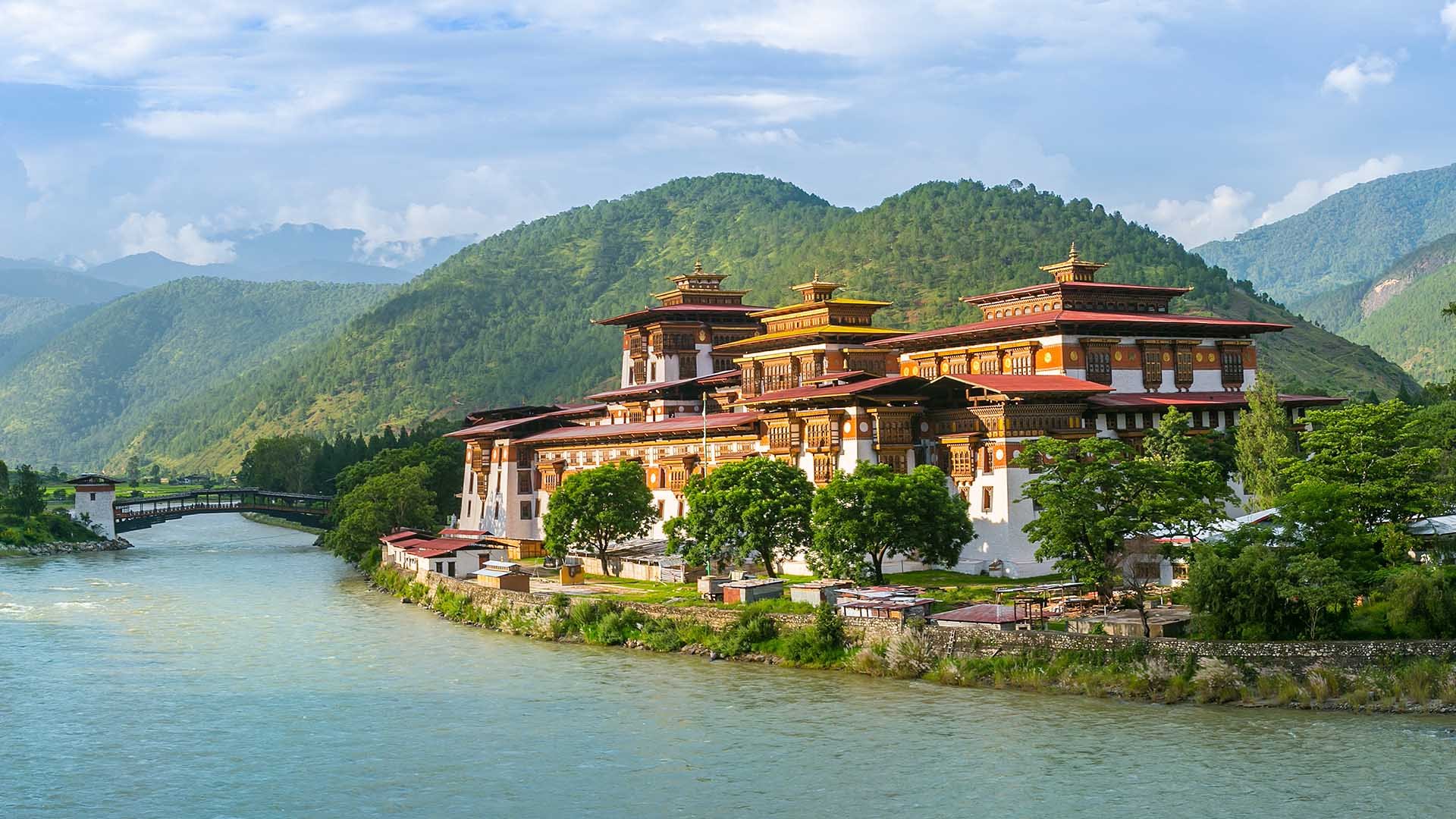 Bhutan's commitment to environmental conservation is unparalleled, with over 70% of its land designated as protected areas. The country's pristine forests, snow-capped peaks, and diverse ecosystems are home to a wealth of flora and fauna, including endangered species such as the Bengal tiger, snow leopard, and black-necked crane.
Bhutan's commitment to environmental conservation is unparalleled, with over 70% of its land designated as protected areas. The country's pristine forests, snow-capped peaks, and diverse ecosystems are home to a wealth of flora and fauna, including endangered species such as the Bengal tiger, snow leopard, and black-necked crane.
Central to Bhutan's conservation efforts is the concept of Gross National Happiness (GNH), which prioritizes holistic well-being and sustainable development over material prosperity. GNH encompasses four pillars: sustainable and equitable socio-economic development, conservation of the environment, preservation and promotion of culture, and good governance. By integrating GNH into its policies and planning, Bhutan has achieved remarkable success in balancing economic growth with environmental preservation.
The Royal Government of Bhutan has implemented a range of initiatives to mitigate climate change, promote renewable energy, and safeguard biodiversity. Hydropower, harnessing the abundant water resources of the Himalayas, is a cornerstone of Bhutan's green economy, providing clean energy to neighboring countries while generating revenue for development projects.
Tourism and Sustainable Development
Bhutan's cautious approach to tourism, guided by the principle of "high value, low volume," has earned it a reputation as an exclusive destination for discerning travelers. The government imposes a daily tariff on tourists, which includes accommodation, meals, transport, and a sustai
Visitors to Bhutan are treated to a wealth of attractions, from scenic valleys and ancient monasteries to traditional festivals and outdoor adventures. Trekking, mountain biking, birdwatching, and cultural tours offer immersive experiences that immerse travelers in Bhutan's unique way of life.
Community-based tourism initiatives empower rural communities to participate in and benefit from tourism activities, fostering socio-economic development and cultural exchange. Homestays, organic farming, and handicraft cooperatives provide alternative livelihoods and opportunities for cultural preservation, while promoting sustainable tourism practices.
Bhutan's journey from a Himalayan kingdom to a global exemplar of sustainable development is a testament to the resilience of its people and the wisdom of its leaders. By embracing the principles of Gross National Happiness, Bhutan has charted a course towards a more equitable, compassionate, and environmentally conscious future.
As the world grapples with pressing challenges such as climate change, biodiversity loss, and social inequality, Bhutan's holistic approach offers valuable lessons and inspiration. By prioritizing well-being over wealth, harmony over growth, and nature over materialism, Bhutan invites us to reconsider our relationship with the planet and each other.
In the pristine landscapes of Bhutan, amidst towering mountains and whispering forests, lies a profound message of hope and possibility. As we tread lightly on this Earth, may we draw inspiration from the land of the Thunder Dragon and strive to create a future where happiness knows no bounds.
Challenges and Opportunities While Bhutan has made significant strides in sustainable development and environmental conservation, it faces several challenges that threaten its progress. One of the pressing issues is climate change, which poses risks to Bhutan's fragile ecosystems, water resources, and agricultural productivity. Melting glaciers, erratic weather patterns, and natural disasters such as floods and landslides are already impacting communities and livelihoods.
While Bhutan has made significant strides in sustainable development and environmental conservation, it faces several challenges that threaten its progress. One of the pressing issues is climate change, which poses risks to Bhutan's fragile ecosystems, water resources, and agricultural productivity. Melting glaciers, erratic weather patterns, and natural disasters such as floods and landslides are already impacting communities and livelihoods.
Addressing climate change requires concerted efforts at the national and international levels, including adaptation measures, renewable energy development, and carbon mitigation strategies. Bhutan has committed to carbon neutrality and sustainable development, setting ambitious targets to reduce greenhouse gas emissions and enhance resilience to climate impacts.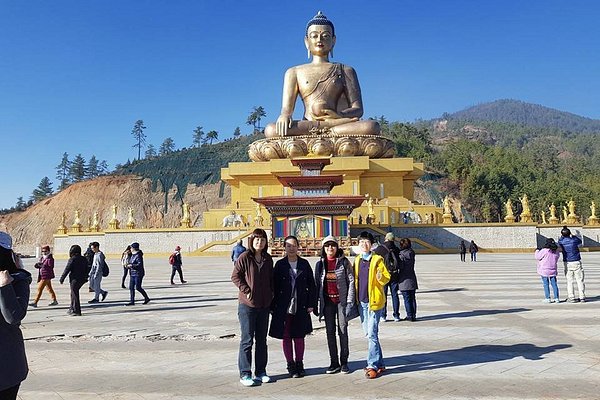
 Another challenge for Bhutan is balancing economic growth with social equity and cultural preservation. Rapid urbanization, youth migration, and socio-economic disparities pose risks to traditional ways of life and cultural identity, particularly in rural areas. Empowering local communities, investing in education and healthcare, and promoting inclusive development are essential for addressing these challenges and ensuring that Bhutan's cultural heritage remains vibrant and resilient.
Another challenge for Bhutan is balancing economic growth with social equity and cultural preservation. Rapid urbanization, youth migration, and socio-economic disparities pose risks to traditional ways of life and cultural identity, particularly in rural areas. Empowering local communities, investing in education and healthcare, and promoting inclusive development are essential for addressing these challenges and ensuring that Bhutan's cultural heritage remains vibrant and resilient.
Despite these challenges, Bhutan is poised to seize opportunities for sustainable development and inclusive growth. The country's rich biodiversity, pristine landscapes, and cultural heritage offer immense potential for eco-tourism, renewable energy, and sustainable agriculture. Bhutan's hydropower resources, in particular, present opportunities for green investment and regional cooperation, contributing to energy security and economic prosperity in the Himalayan region.
Moreover, Bhutan's commitment to Gross National Happiness and sustainable development serves as a model for other countries seeking to balance economic growth with environmental stewardship and social well-being. By prioritizing people and planet over profit, Bhutan has demonstrated that a different path is possible, one that values happiness, harmony, and holistic prosperity.
Conclusion In conclusion, Bhutan stands as a shining example of what is possible when a nation prioritizes the well-being of its people, the preservation of its natural environment, and the promotion of its cultural heritage. Through its unique philosophy of Gross National Happiness, Bhutan has charted a path towards sustainable development, social equity, and environmental stewardship.
In conclusion, Bhutan stands as a shining example of what is possible when a nation prioritizes the well-being of its people, the preservation of its natural environment, and the promotion of its cultural heritage. Through its unique philosophy of Gross National Happiness, Bhutan has charted a path towards sustainable development, social equity, and environmental stewardship.
As the world faces unprecedented challenges ranging from climate change to global pandemics, Bhutan's approach offers valuable insights and inspiration. By embracing the principles of GNH and sustainable development, countries can build a more resilient, inclusive, and compassionate future for all.
As we navigate the complexities of the 21st century, let us look to Bhutan not only as a destination for travelers but also as a beacon of hope and possibility. In the majestic landscapes of the Himalayas, amidst the whispers of prayer flags and the chants of monks, lies a profound wisdom that reminds us of our interconnectedness and our shared responsibility to protect and preserve this planet we call home.

















































